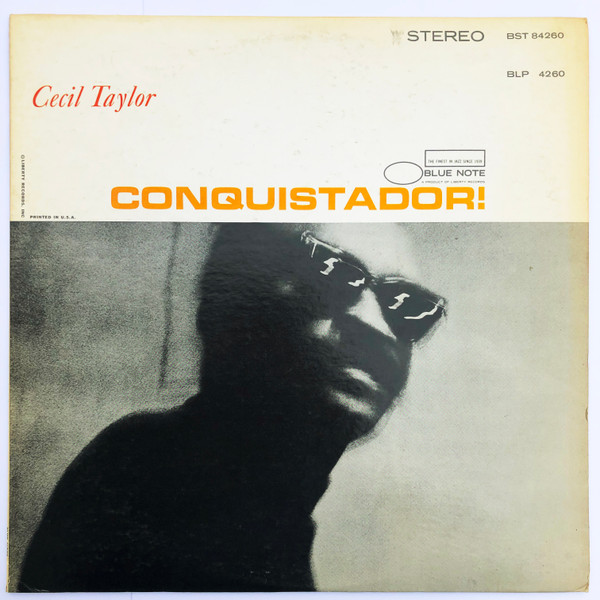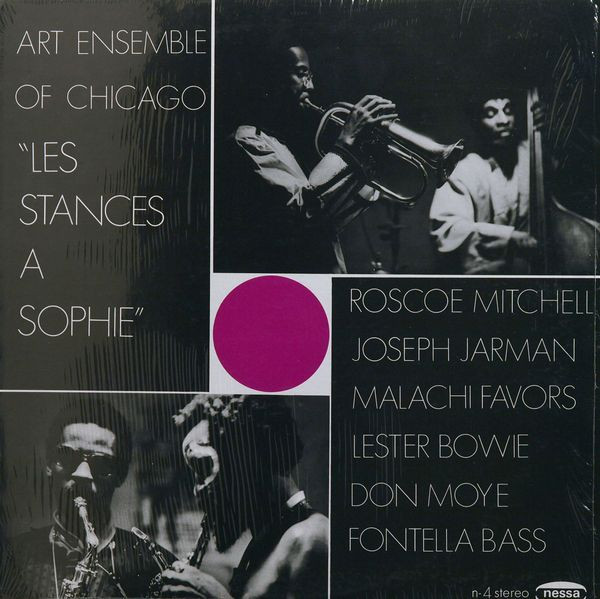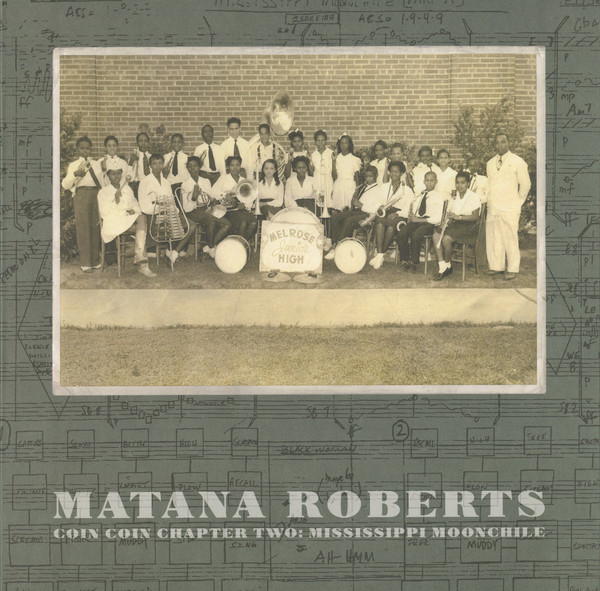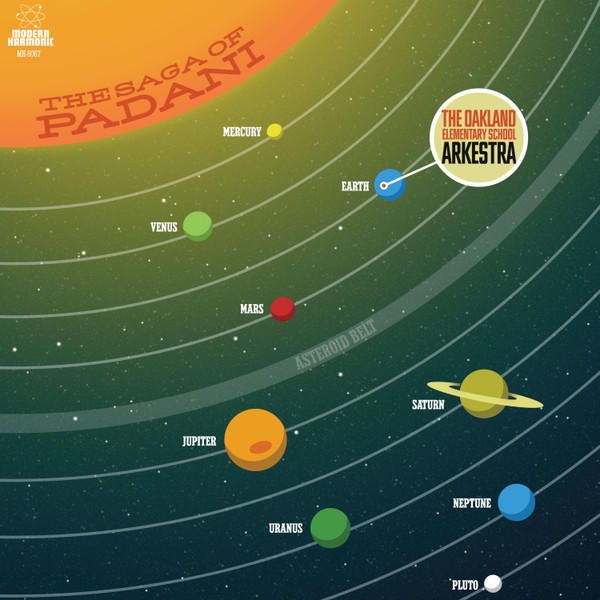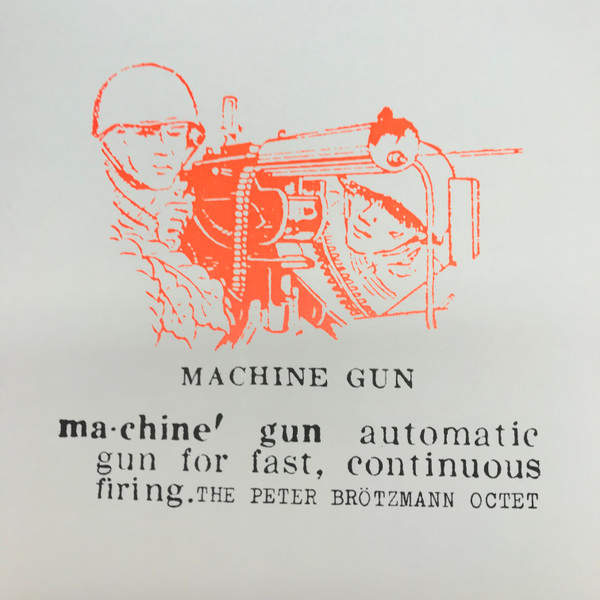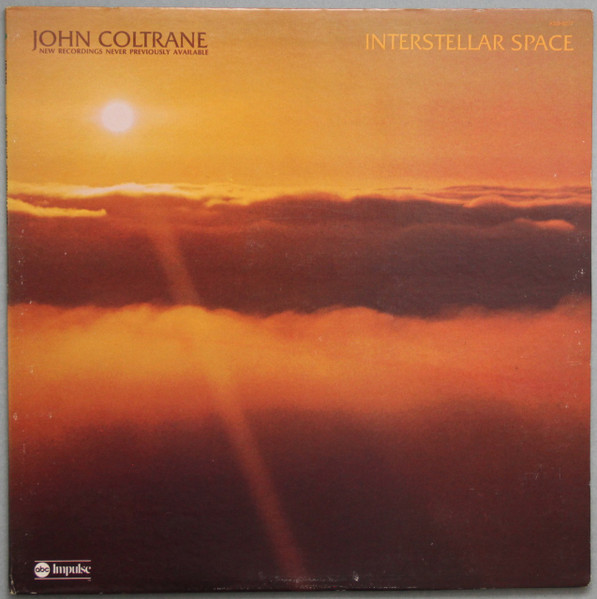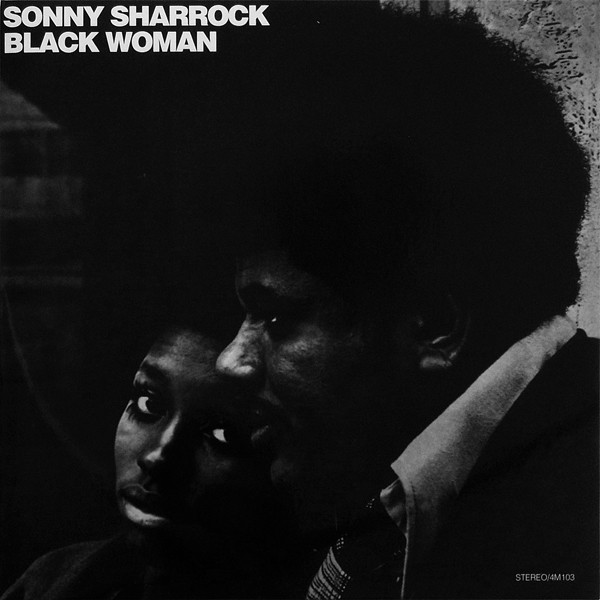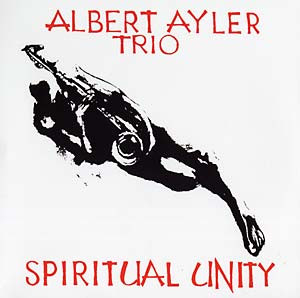A Guide to Free Jazz in 10 Albums
Free jazz isn’t noise; it’s unchained, boundary-pushing expression. Explore the genre here.
On November 17, 1959, saxophonist and would-be jazz revolutionary Ornette Coleman embarked on a hotly anticipated residency at the 5 Spot in New York. Before this residency, Coleman and his quartet had made waves on the West Coast by subverting the harmonic, rhythmic, and melodic structure of jazz. Instead of having the melodic instruments in his ensemble follow a set progression of chords anchored by a steady beat, Coleman trained his band to follow and react to the soloist’s lead. This “harmolodic” concept broke down the hierarchy between soloist and accompanist, giving birth to the subgenre now known as free jazz.
By bringing this forward-thinking sound to New York — the epicenter of the jazz world — Coleman presented a monumental challenge to musicians everywhere. He had essentially introduced a new musical language, and generations of musicians would carry the word Coleman spread. Dovetailing with the increasing militancy of the Black American civil rights movement of the ’60s and ’70s, jazz’s avant-garde became the lingua franca of Black political, spiritual, and cultural expression everywhere.
Here are 10 albums to introduce adventurous listeners to this challenging yet rewarding musical movement.
Ornette Coleman
The Shape Of Jazz To Come (1959)
The title of Ornette Coleman’s 1959 album, The Shape Of Jazz To Come, is both a provocation and a prediction. By positing free jazz as the future of music, Coleman challenged jazz’s established conventions and foretold his emergence as a major innovator. While the album’s six compositions are undeniably progressive, songs like “Peace,” “Focus On Sanity” and “Lonely Woman” possess an emotional depth that also hints at Coleman’s background playing the blues and “traditional” jazz forms on his earlier records, Something Else!!!! and Tomorrow Is The Question! A stunning document of a musician and his ensemble in the process of redefining an art form, The Shape Of Jazz To Come is as radical as it is prophetic.
Albert Ayler
Spirits (1964)
If Ornette Coleman and John Coltrane represented the respective intellect and soul of the avant-garde jazz movement, saxophonist Albert Ayler was either its heart or its guts. A relentlessly original player, Ayler coaxed earth-scorching volatility and soul-enriching tenderness from his instrument. 1964’s Spirits (sometimes called Witches & Devils) is not only one of Ayler’s best, it’s one of the titanic artistic statements of the era. Traversing the blues, jazz, gospel, and R&B with equal fire and depth, Sprits reminds us that free jazz did not happen in a vacuum. It is a movement that is linked to older, foundational forms of Black music.
John Coltrane
Ascension (1966)
As the predominant figure in jazz in the 1960s, saxophonist John Coltrane’s innovations had a profound influence on the genre. From his ballads with Johnny Hartman to his experiments with Eastern music, jazz in the ’60s went where Coltrane went. Coltrane’s embrace of free jazz represented an upheaval in the genre. Critics like Downbeat editor John Tynan dismissed Coltrane’s new experiments as “anti-jazz,” while a generation of young players took up the challenge to follow Coltrane’s new sound.
Made up of two nearly 20-minute-long improvisations, 1966’s Ascension is one of the most ambitious albums in Coltrane’s vast catalog. Suited for a large orchestra, the music here is unbelievably intense and heavy, with Coltrane’s ensemble conjuring dense waves of sound that envelop the listener.
Don Cherry
Symphony For Improvisers (1967)
Multi-instrumentalist and composer Don Cherry was a member of Ornette Coleman’s early band that recorded the likes of Something Else!, The Shape Of Jazz To Come, and This Is Our Music. In this role, Cherry benefited mightily from years of study and collaboration with free jazz’s most important innovator. By the time he entered Rudy Van Gelder’s famed Englewood Cliffs, New Jersey studio in 1966, he was an accomplished bandleader in his own right. The product of those sessions was Symphony For Improvisers, a stunning document of jazz’s cutting edge at the time. “Manhattan Cry” is a sorrowful, blues-tinged ballad highlighting Karl Berger’s piano playing, and the title track, “Symphony For Improvisors,” is a brash, collective improvisation that pushes jazz’s boundaries to its near breaking point.
Cecil Taylor
Conquistador! (1968)
Pianist/composer Cecil Taylor was one of the great musical minds of the 20th Century. A tireless experimenter, Taylor’s percussive, abstract playing opened up shocking new possibilities for the piano. With Taylor’s powerful and unconventional piano style at its forefront, Conquistador! is a musical tour de force. Throughout the album’s lengthy, exploratory tunes, Taylor takes the blues, bebop, and classical, blows them up, and reassembles them right before our ears. Alto saxophonist Jimmy Lyons also stands out with his playful, lyrical playing throughout. With Andrew Cyrille on drums and Henry Grimes and Alan Silva handling bass duties, Conquistador! is a powerful example of a gifted ensemble supporting one of jazz’s most singular voices.
Art Ensemble Of Chicago
Les Stances À Sophie (1970)
As key figures in the Association for the Advancement of Creative Musicians, The Art Ensemble Of Chicago was integral to the wildly forward-thinking jazz scene that emerged in Chicago in the 1960s. Collaborating with R&B singer Fontella Bass, the Art Ensemble’s soundtrack to the 1970 film Les Stances A Sohpine is an intoxicating mixture of free jazz and pop. The band displays their gift at crafting drone-like tone poems on the song “Theme Amour Universal,” then link with Bass to produce “Theme De Yoyo,” a blistering work of brass-heavy avant-funk.
Sun Ra
Space Is The Place (1973)
With an untold number of compositions, arrangements, and recordings, it would take years for an adventurous music fan to fully explore the catalog of pianist/composer Sun Ra. The soundtrack to John Coney’s 1973 surrealist Sun Ra vehicle, Space Is The Place, is one of the great standouts in Sun Ra’s extensive discography. Packed with big band arrangements, bizarre electronic keyboard sounds, chants, and some truly transcendent improvisation, Space Is The Place finds Sun Ra and his Arkestra operating at the height of their powers.
Matana Roberts
Coin Coin Chapter Two: Mississippi Moonchile (2013)
Saxophonist and composer Matana Roberts is without question one of the brightest lights in contemporary jazz. Comfortable exploring a variety of musical contexts, Mississippi Moonchile — the 2013 installment of her Coin Coin series — is one of her best. Rooted in the personal memories of her family and the collective memory of African Americans as a whole, Coin Coin draws power and influence from the past and present. Steeped in the blues and guided by Robert’s ferocious and spirited playing, Coin Coin looks to history to inform a new sound that is shockingly progressive.
The Oakland Elementary School Arkestra
The Saga Of Padani (2018)
In the late 80s, an elementary school teacher named Randy Porter wanted to raise money for the music program at Thornhill Elementary School in Oakland. To raise money for the school, Porter recruited avant-garde jazz titan Anthony Braxton to perform a fundraising concert for the music program. This concert inspired Porter to create a new musical program at Thornhill, a large ensemble in which elementary school students would learn to play free improvisational music alongside some of the greatest musicians of the 20th Century.
The Saga of Padani is a compilation of recordings from this program, featuring legends like Marshall Allen, Henry Threadgill, Terry Riley, and Fred Frith playing alongside Porter’s students. One of the most unique albums of the 90s, The Saga Of Padani reminds us that the creative impulses of children and adults are more similar than not.
Irreversible Entanglements
Protect Your Light (2023)
Irreversible Entanglements is one of the most exciting and noteworthy bands in contemporary jazz. Made up of poet Camae Ayewa, drummer Tcheser Holmes, trumpeter Aquiles Navarro, saxophonist Keir Neuringer, and bassist Luke Stewart, Irreversible Entanglements made more than a handful of fantastic recordings since their 2017 self-titled debut. Their latest, 2023’s Protect Your Light! is their strongest yet, with songs like “Our Land Back” and “Degrees of Freedom” serving as anthems for a future revolution.
More essential Free Jazz Records
KEEP DIGGING
Don’t miss a beat
Subscribe to Discogs’ email list to learn about sales, discover music, record collecting guides, product tips, limited edition offers, and more.





